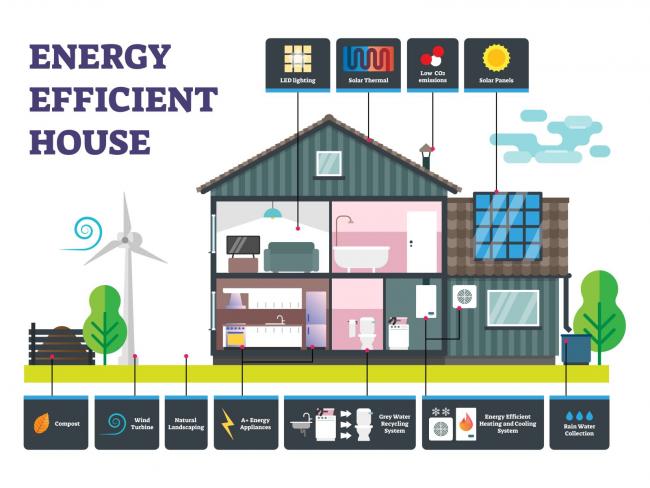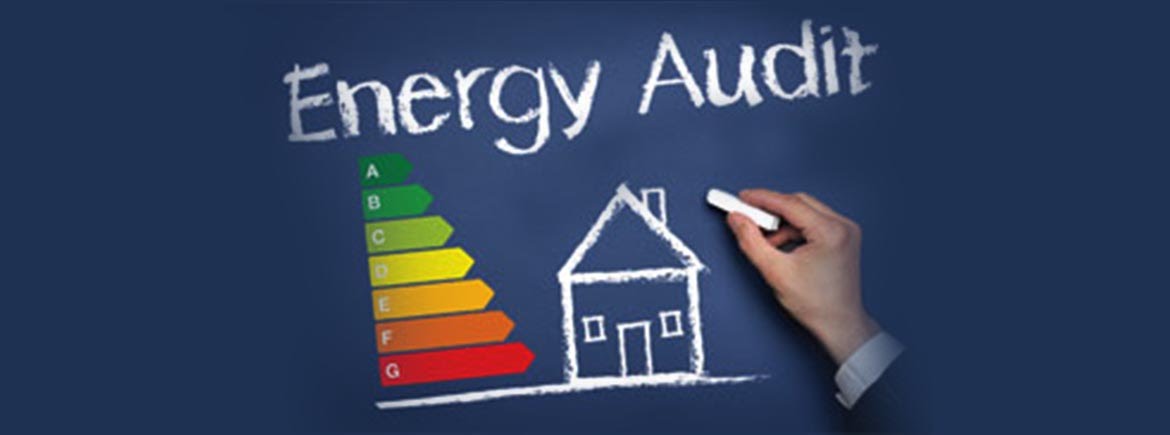There are lots of home-buying suggestions: “location, location, location”, “talk to the current homeowners to learn about how they took care of the place” – that kind of thing. “Find a place that’s energy-efficient” has become another handy home-buying rule. Energy efficiency is one of the top priorities for many home buyers, both because energy-efficient homes can save money and reduce pollution.
Here’s the million-dollar question: how do you know a home that you’re buying is energy-efficient? There are some analyses to keep in mind here, too: all other things being equal, smaller homes will be more efficient than larger homes, and places that generate their own renewable energy will be more efficient than those that don’t.
Outside of that probing, there’s a lot of investigative work you can do to evaluate the efficiency of a particular home. Let’s dive in:

How Do I Know I’m Getting an Energy-Efficient Home
Finding out if a home is energy-efficient isn’t rocket science, fortunately. You can easily tell if a place can utilize energy well by following these steps:
Check the appliances
Appliances make up a large part of any household’s energy bills. This is true of ovens, dishwashers, dryers, and the like, but it’s especially true of any HVAC-related appliances.
Space heating and cooling typically make up 50% or more of a home’s energy budget – that’s why it’s important to consider the age of your HVAC units before you buy. Ask the homeowner when their furnace and air conditioning were installed – write down the model numbers and do a search on them to figure out the units’ energy efficiencies.
Continue this process with all other energy-consuming appliances. Check Energy Star’s Appliance resource page to get more information about a variety of energy-efficient appliances.
If the appliances are outdated, you might have to replace them. Newer models of home appliances usually come with features like smart sensors or intuitive thermostat regulators. These allow them to be more efficient, saving more on power and costs and thus keeping bills low.
You can also try buying inverter appliances to save energy. These innovations eliminate wasted appliance operation, especially in air conditioning units, by regulating motor speed. Inverter ACs let you maintain climate control without raising your energy consumption.
Check the wiring
There are a lot of reasons to check the wiring in a home you’re planning on purchasing: the biggest one is safety. Old wiring systems will short circuit frequently under the electrical load of modern homes, and they’re a fire hazard.
You might wonder what any of this has to do with energy efficiency – the answer lies in the heat that old wiring systems will generate when they’re overcapacity. This heat means your air conditioner will have to work harder. What’s more, appliances may take longer to heat when they’re not getting sufficient power.
An old house wiring inspection is particularly important; houses built prior to 1950 are particularly likely to have knob-and-tube wiring, which does not meet the standards for current electrical loads.
Check their utility bills
This is a pretty simple solution: ask the current homeowners if you can look at their utility bills. Most will be more than glad to show you what they’re paying if they have an energy-efficient home.
Keep in mind that no two homeowners are alike, so this isn’t an exact science: you might, in your daily living, use more or less energy than them. Larger families tend to use more energy, so update your calculations accordingly. You can easily estimate your monthly utility bills by using an electricity cost calculator. It can help you better scale your consumption to fit your budget or let you know if there are problems.
Energy bill calculations also depend on your location. This is because energy laws often dictate energy consumption and production. In the USA, many states have deregulated electricity. That lets consumers shop for better rates or renewable energy. The state of Connecticut is a great example. In fact, Connecticut electric suppliers compete for customers and can offer lower rates than the usual utility company.
Conduct an energy audit

One of the most important sources of energy efficiency is insulation – after all, if your home is very well-insulated, you’ll need to spend that much less on heating and cooling. How well-insulated home isn’t obvious to the untrained eye – that’s where an energy audit can help.
You can self conduct energy audits (the Department of Energy has a great resource on self audits), but professional audits are generally much simpler. The audit will help you find weak points in the building envelope where heat transfer happens – the fewer of these weak points there are (and the less heat transfer there is), the more energy-efficient the home is.
Look for green technologies
Renewable energy sources, like solar panels, are a big plus when you’re looking for an energy-efficient home. So too are smart technologies like smart thermostats and/or smart lights – they can help you track and reduce your energy consumption. You might want to ask the homeowner how to work the smart technologies since they aren’t all intuitive.
Checking all of the things we’ve listed here will help you get a much better idea of how energy-efficient a home is. A final piece of advice – never just take someone’s word for it, and don’t believe labels like “this home is green” or “this is an eco-home” without delving a bit deeper into why they’re making those statements.
Happy home hunting!